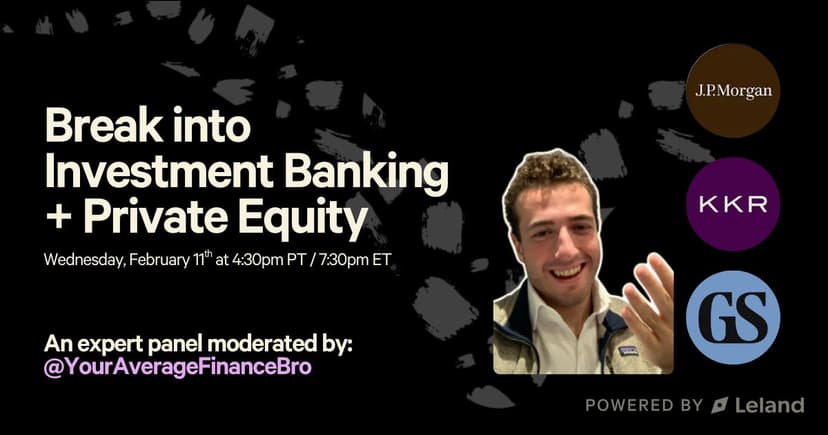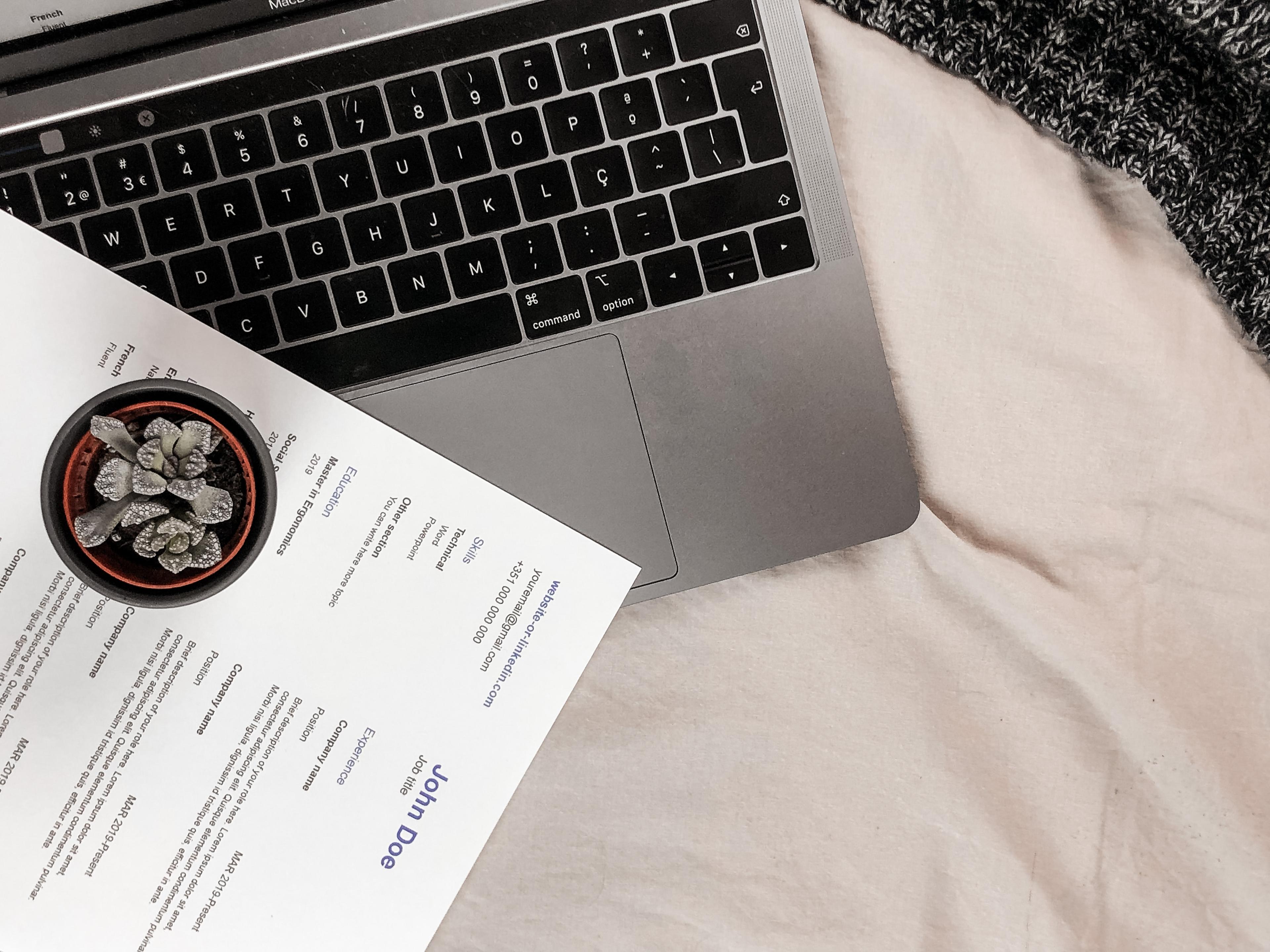How to Prepare for Credit Suisse Investment Banking Interviews
If you're looking to land a job in investment banking, you'll need to be prepared for the rigorous interview process at Credit Suisse.
Posted June 13, 2025

Join a free event
Learn from top coaches and industry experts in live, interactive sessions you can join for free.
Table of Contents
If you're aspiring to have a career in investment banking and you're considering Credit Suisse as a potential employer, it's important to equip yourself with sufficient knowledge and preparation to stand out from other applicants. This guide will take you through the essential steps to prepare for Credit Suisse investment banking interviews.
Understanding the Credit Suisse Recruitment Process
Credit Suisse follows a rigorous recruitment process consisting of several stages. It usually starts with the submission of your application online, which includes a resume and cover letter. Assuming that your application is successful, you'll then proceed to several rounds of interviews, including phone, video, and in-person interviews. Some candidates may also be required to undertake online assessments or psychometric tests.
It's important to note that Credit Suisse places a strong emphasis on cultural fit during the recruitment process. This means that in addition to assessing your skills and experience, they will also evaluate whether you align with the company's values and work culture. It's therefore recommended that you research the company thoroughly and prepare to demonstrate how you can contribute to their culture during the interview process.
Top Skills and Qualities that Credit Suisse Seeks in Investment Banking Candidates
Credit Suisse looks for candidates with a diverse range of skills and attributes. As an investment bank, the company values candidates who demonstrate a strong aptitude for financial analysis, problem-solving, critical thinking, and communication. In addition, Credit Suisse values individuals who can work effectively in a team environment, show leadership potential, and are willing to take accountability for their work.
Another important quality that Credit Suisse seeks in investment banking candidates is adaptability. The financial industry is constantly evolving, and the ability to adapt to new technologies, regulations, and market conditions is crucial. Candidates who can demonstrate a willingness to learn and adapt quickly will be highly valued by the company.
Finally, Credit Suisse values candidates who have a global mindset and cultural awareness. As a global bank, the company operates in many different countries and works with clients from diverse backgrounds. Candidates who have experience working in different cultures or who speak multiple languages will have an advantage in the hiring process.
Researching Credit Suisse and Its Business Lines
Before you apply for a position at Credit Suisse, it's important to research the company and understand its business lines. This includes the company's history, values, products, and services, as well as its competitors and market position. Researching the company will provide you with an insight into the type of candidate Credit Suisse is looking for and enable you to tailor your application to the company's specifics.
Additionally, it's important to research the current state of the industry in which Credit Suisse operates. This includes staying up-to-date on any regulatory changes, market trends, and emerging technologies that may impact the company's business lines. Understanding the broader industry landscape will not only demonstrate your knowledge and interest in the field, but also enable you to ask informed questions during the interview process and potentially identify areas where you can contribute to the company's growth and success.
Tips for Crafting a Compelling Resume and Cover Letter for Credit Suisse
The first impression matters when it comes to job applications. Therefore, it's essential to craft a resume and cover letter that showcase your skills and experience effectively. Your resume should be tailored to the specific role you're applying for, highlighting your relevant experience and achievements. Your cover letter should be concise, engaging, and show your motivation for working at Credit Suisse, as well as how your skills align with the company's values.
When crafting your resume, it's important to use strong action verbs and quantify your achievements whenever possible. This will help your resume stand out and demonstrate your impact in previous roles. Additionally, make sure to proofread your resume and have someone else review it for errors or inconsistencies.
For your cover letter, research the company and the specific role you're applying for. This will allow you to tailor your letter to the company's values and show how your skills align with their mission. Use specific examples to demonstrate your qualifications and avoid generic statements. Finally, make sure to thank the hiring manager for their time and consideration at the end of your letter.
Preparing for the Credit Suisse Interview: Essential Steps to Take
Preparation is key when it comes to interview success. Before the interview, research the company, the role, and prepare answers to common interview questions. It's also essential to dress appropriately, arrive early, and bring all the relevant documents, including your resume and cover letter.
Another important step in preparing for a Credit Suisse interview is to practice your communication skills. This includes practicing your tone of voice, body language, and eye contact. You want to come across as confident and professional during the interview.
It's also a good idea to familiarize yourself with the company's values and culture. This will help you understand what they are looking for in a candidate and allow you to tailor your responses accordingly. Additionally, researching the company's recent projects and initiatives can give you an edge in the interview by demonstrating your knowledge and interest in the company.
Common Interview Questions Asked by Credit Suisse and How to Answer Them
During the interview, you can expect to be asked a variety of questions, including behavioral and competency-based questions, as well as technical finance questions. It's important to answer these questions effectively, showcasing your problem-solving, teamwork, leadership, and communication abilities. Some examples of common interview questions include 'Can you walk me through your resume?' 'What do you know about Credit Suisse? What makes you want to work here?' and 'How do you stay current with industry developments?'.
In addition to these common interview questions, Credit Suisse may also ask situational questions to assess your ability to handle real-life scenarios. For example, they may ask 'How would you handle a difficult client?' or 'What would you do if you discovered a mistake in a financial report?'. It's important to prepare for these types of questions by thinking about your past experiences and how you have handled similar situations in the past. Remember to provide specific examples and focus on the actions you took to resolve the situation.
Technical Finance Questions and How to Tackle Them in Credit Suisse Interviews
Some interviews may focus specifically on your technical knowledge of financial concepts and instruments. These questions may include financial models, valuation techniques, and accounting principles. To succeed in these interviews, it's important to be comfortable with these concepts and practice applying them in commercial situations. It's also essential to have a thorough understanding of the industry and market trends.
Additionally, it's important to be able to communicate your thought process and reasoning behind your answers. Employers want to see that you can not only solve problems, but also explain how you arrived at your solution. This demonstrates your ability to work collaboratively and effectively with others in the workplace. It's also helpful to stay up-to-date with industry news and developments, as this shows your passion and dedication to the field.
Behavioral Interview Questions and How to Provide Winning Answers
Behavioral interview questions are designed to assess your work experience and use specific anecdotes to gauge your problem-solving abilities, teamwork skills, and leadership potential. These questions may include 'Can you tell me about a time when you had to solve a complex problem?' or 'How have you dealt with a difficult colleague or team member?' To answer these questions effectively, it's important to prepare relevant examples from your professional experience and show how you contributed to achieving a positive outcome.
One important thing to keep in mind when answering behavioral interview questions is to use the STAR method. This stands for Situation, Task, Action, and Result. Start by describing the situation or task you were faced with, then explain the actions you took to address the situation, and finally, describe the positive result that came from your actions. This method helps you provide a clear and concise answer that highlights your problem-solving skills.
It's also important to remember that behavioral interview questions are not just about the outcome, but also about the process. Employers want to see how you approach problems and work with others to find solutions. So, when answering these questions, be sure to emphasize your communication skills, ability to collaborate with others, and willingness to take on new challenges.
Practicing with Mock Interviews and Getting Feedback
Practicing with mock interviews is an excellent way to prepare for interviews. These can be arranged with careers advisors, alumni, or peers who have experience with Credit Suisse or investment banking interviews. It's important to get feedback on your performance and identify areas for improvement.
During mock interviews, it's important to treat the experience as if it were a real interview. Dress professionally, arrive on time, and bring a copy of your resume. This will help you get a better sense of what it's like to be in an actual interview and help you feel more comfortable during the real thing. Additionally, practicing with different people can give you a variety of perspectives and help you identify your strengths and weaknesses. Don't be afraid to ask for feedback and take notes on areas you need to improve on. With enough practice and feedback, you'll be well-prepared for any interview that comes your way.
Dressing for Success: What to Wear for Your Credit Suisse Interview
First impressions count, and your appearance is an essential component of that. Choosing the right attire for your interview is crucial. In general, it's essential to dress conservatively and professionally, with a suit and tie for men and a conservative suit or dress for women.
However, it's also important to consider the company culture and dress code when selecting your interview outfit. Research the company's website and social media pages to get a sense of their style and dress expectations. If the company has a more casual dress code, you may be able to forgo the suit and opt for a more business casual outfit. On the other hand, if the company has a strict dress code, it's better to err on the side of caution and dress more formally.
Follow-up Strategies After Your Credit Suisse Interview
Following up after your interview is an excellent way to show your continued interest in the position. Within 24 hours of the interview, you should send a follow-up email, thanking the interviewer for their time and restating your interest in the position. This message should be concise, professional, and demonstrate your enthusiasm for the role.
Additional Resources for Preparing for a Career in Investment Banking at Credit Suisse
There are several resources available to help prepare for an investment banking career at Credit Suisse. This includes books, forums, websites, and LinkedIn groups. You can also engage with alumni and other professionals for advice and guidance on how to succeed in investment banking at Credit Suisse.
By following these essential steps, you'll significantly increase your chances of success when preparing for Credit Suisse investment banking interviews. Good luck!
Ready to dive deeper into the world of investment banking? Expand your knowledge and gain valuable insights by checking out these recommended resources:
Browse hundreds of expert coaches
Leland coaches have helped thousands of people achieve their goals. A dedicated mentor can make all the difference.




















